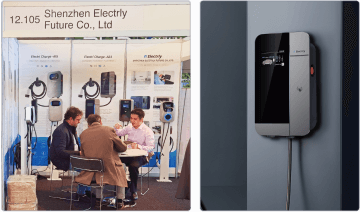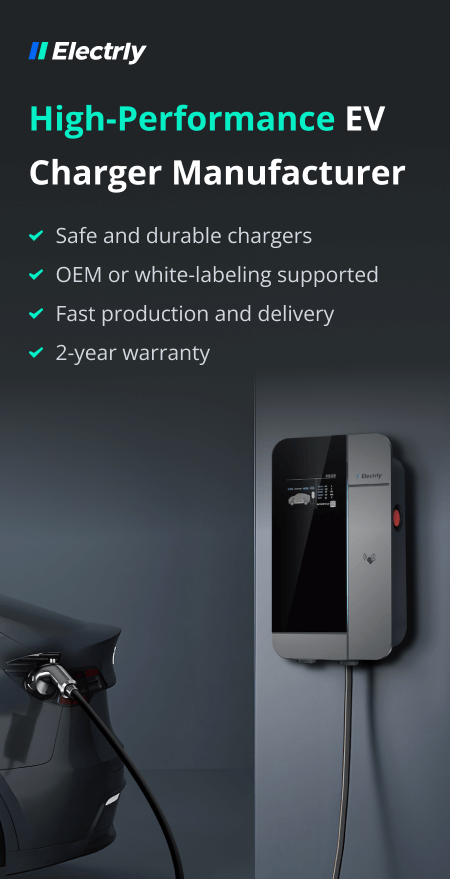The US government has set ambitious targets for electric vehicle (EV) adoption to meet its carbon emissions reduction targets and spur economic growth. Drivers can receive a federal rebate for electric cars of up to $7,500 when they purchase an EV until 2032.
In addition to federal incentives for electric cars, most states offer some form of rebate, discount, or tax credit for buying an EV. Some local utilities also provide incentives such as preferential power rates.
In this article, Electrly has provided an overview of electric car incentives by state.
Electric Car Incentives by State at a Glance
Only four states do not offer financial incentives for EV drivers: Kentucky, Montana, North Dakota, and Wyoming.
Alabama
Alabama Power offers a time-of-use (TOU) rate for customers that charge during off-peak hours.
Alaska
Alaska Power and Telephone (AP&T) provides a $1,000 EV rebate. Alaska Electric Light and Power (AEL&P) offers a TOU rate. Chugach Electric Association (CEA) provides a $200 bill credit for up to two charging stations per household.
Arizona
Salt River Project (SRP), Tucson Electric Power (TEP), and Arizona Public Service Company (APS) provide TOU plans.
Arkansas
Entergy offers a $250 rebate for Level 2 charger installation.
California
California offers over a dozen incentives, including EV purchases. Many of the state’s utilities also offer TOU rates. Find out more here.
Colorado
Colorado offers tax credits of up to $2,000 for new light-duty EVs and up to $8,000 for new trucks.
Xcel Energy in Colorado offers up to $5,500 for new and $3,000 for used EVs with a TOU rate sign-up. San Isabel Electric offers $500 for an EV and up to $500 for a Level 2 charger.
Connecticut
The Connecticut Hydrogen and Electric Automobile Purchase Rebate Program (CHEAPR) pays up to $9,500 for new EVs, hydrogen fuel cell electric vehicles (FCEVs), and plug-in hybrid vehicles (PHEVs), and up to $7,500 for used vehicles.
Norwich Public Utilities (NPU) pays up to $500 for used EVs, $500-1,000 for new EVs and PHEVs, and $1,000 for Level 2 chargers. Eversource offers up to $1,000 for chargers and up to $300 for its managed charging program.
Delaware
Delaware pays $1,000 for a new PHEV and $2,500 for a new EV. A new rebate comes into effect from May 1.
EV drivers can receive credits for energy sent to the grid. Delaware Electric Co-op (DEC) offers a $100 rebate and a $5 monthly bill credit for not charging during peak power alerts. Delmarva Power offers a TOU rate.
Florida
Orlando Utilities Commission (OUC) offers a $200 EV rebate. Kissimmee Utility Authority (KUA) pays a $100 rebate for a new EV and $100 for a charger.
Jacksonville Electric Authority (JEA) pays an off-peak charging rebate of up to $7 monthly and Duke Energy offers a $10 monthly bill credit.
Georgia
Georgia Power offers a $250 rebate for a Level 2 charger and TOU rates.
Hawaii
Hawaiian Electric offers a TOU rate for charging.
Idaho
EVs and PHEVs are exempt from vehicle inspection and maintenance programs.
Illinois
The Illinois Environmental Protection Agency (IEPA) offers rebates of $4,000 for new or used EVs before June 30, 2026, $2,000 between July 1, 2026, and June 30, 2027, and $1,500 from July 1, 2028. New electric motorcycles receive $1,500. Ameren Illinois offers TOU rates.
Indiana
Applied Energy Services (AES) Indiana offers TOU rates and a $250 rebate along with a $50 annual incentive for its managed charging program.
Indiana Michigan Power offers a TOU rate and a $500 rebate for a Level 2 charger.
Iowa
MidAmerican Energy offers TOU rates.
Kansas
Evergy offers a $250 rebate for a Level 2 charger purchase and $250 to sign up for its TOU rate.
Louisiana
Entergy and Southwestern Electric Power Company (SWEPCO) each offer $250 rebates for Level 2 charger installations.
Maine
Efficiency Maine’s EV Accelerator provides rebates of $1,000-7,500 for new EVs and $500-3,000 for PHEVs. Low-income residents can receive $2,500 for used vehicle purchases.
Maryland
From July 1, 2023, to July 1, 2027, EV and FCEV purchases can receive excise tax credits of up to $3,000.
Several utilities offer TOU rates and charger rebates.
Massachusetts
Massachusetts Offers Rebates for Electric Vehicles (MOR-EV) program pays up to $3,500 toward the purchase or lease of EVs and PHEVs.
Several utilities offer TOU rates and charger rebates.
Michigan
Great Lakes Energy (GLE) and Cherryland Electric Cooperative each pay $1,000 for a new EV, while Presque Isle Electric & Gas Co-Op (PIEG) offers a $1,500 rebate for a new EV and $750 for a used EV.
These and several other utilities also provide charger rebates and TOU rates.
Minnesota
Several utilities provide TOU rates and charger rebates.
Mississippi
Mississippi Power offers a $1,250 rebate for new EVs, $1,000 for leases, $750 for PHEVs and used EVs, and up to $250 for Level 2 chargers.
Missouri
Evergy in Missouri offers $500 and Kirkwood Electric pays $300 for Level 2 charger installations.
Nebraska
Nebraska Public Power District (NPPD) and Southern Public Power District (SPPD) offer $500 rebates for Level 2 charger installations and $600 for pre-wiring upgrades.
Nevada
NV Energy offers a $2,500 rebate to low-income customers for new or used EVs, pays $500 for Level 2 charger purchases, and provides a TOU rate.
New Hampshire
New Hampshire Electric Co-op (NHEC) provides rebates of $300-1,000 for a new or used electric motorcycle, PHEV, or EV, pays a $300 Level 2 charger rebate, and offers TOU rates.
New Jersey
PSE&G offers a rebate of up to $1,500 for a Level 2 charger. Atlantic City Electric (ACE) pays $1,000 up to 50% of a charger’s cost. Jersey Central Power & Light (JCP&L) offers charger rebates of up to $5,500 plus off-peak charging bill credits.
New Mexico
Powering New Mexico (PNM) pays a $300 rebate for Level 2 chargers. El Paso Electric (EPE) offers a charger rebate of $500, or $2,300 for low-income customers, and TOU rates.
New York
The New York State Energy Research and Development Authority (NYSERDA) pays up to $2,000 for a new EV. Several utilities offer TOU rates.
North Carolina
Duke Energy pays a $1,133 rebate for electrical upgrades to support a Level 2 direct current (DC) fast charger.
Ohio
Firelands Electric Cooperative (FEC) pays $250 for a Level 2 charger installation.
Oklahoma
Public Service Company of Oklahoma (PSO) offers a $250 rebate for Level 2 charger installation. Oklahoma Electric Cooperative (OEC) pays a $200 rebate for off-peak charging.
Oregon
The Clean Vehicle Rebate Program and the Charge Ahead Rebate Program can be combined for a maximum rebate of $7,500.
Several utilities provide TOU rates and charger rebates.
Pennsylvania
The Pennsylvania Department of Environmental Protection (DEP) offers rebates of $500-2,000 for electric motorcycles, PHEVs, or EVs. Low-income residents can receive an additional $1,000.
PECO provides a $50 rebate for new EVs. Duquesne Light Company (DLC) offers a $50 gift card or direct deposit.
Rhode Island
The Driving Rhode Island to Vehicle Electrification (DRIVE EV) rebate pays $750-2,500 for an EV or PHEV.
South Carolina
Santee Cooper offers a rebate of up to $250 for a Level 2 charger.
Tennessee
Knoxville Utility Board (KUB) offers a rebate of up to $400 for a Level 2 charger.
Texas
The Light-Duty Motor Vehicle Purchase or Lease Incentive Program provides a rebate of up to $2,500 for EVs, FCEVs, and PHEVs.
Several utilities provide EV and charger rebates.
Utah
The Alternative Fuel Heavy Duty Vehicle Tax Credit Program provides credit for heavy-duty EVs, decreasing from $12,000 in 2023 to $1,500 in 2030.
Rocky Mountain Power provides a Level 2 charger rebate of up to $200 and a TOU rate.
Vermont
The Vermont Agency of Transportation offers $2,500 or $4,000 for a new EV and $1,500 or $3,000 for a PHEV based on income.
Several utilities provide incentives for EV purchases and leasing, charger installation, and off-peak charging.
Virginia
Several utilities provide TOU rates and charger rebates. Check the Alternative Fuels Data Center for details.
Washington
Clark Public Utilities (CPU) offers low-income customers up to $2,000 for a used EV. Several utilities provide TOU rates and charger rebates.
Washington, DC
Qualifying EVs receive a vehicle title excise tax exemption.
West Virginia
Appalachian Power offers a Level 2 charger rebate of up to $500.
Wisconsin
Several utilities provide TOU rates and charger rebates.
What About Federal Government Incentives?
The Inflation Reduction Act of 2022 extended the federal clean vehicle tax credit from 2022 until 2032 and introduced changes including manufacturing requirements, eligibility for certain types of vehicles, and income thresholds.
For the 2022-2023 tax year, drivers can receive a tax credit ranging from $2,500 to $7,500 for new EVs, depending on the battery capacity. The used vehicle credit is limited to 30% of the sale price, up to $4,000.
You can find out more about the updated EV Tax Credit here.
Other Electric Vehicle Incentives You May Qualify For
In addition to federal, state, and utility rebates, you might also be able to receive discounts on EV charging from local charging stations and vehicle manufacturers.
Manufacturers often provide sales incentives to reduce their inventories, which can take the form of a cash-back rebate or a reduced-rate deal on financing with as little as 0% interest. Deals tend to be the most generous at the end of a model year. Deals often vary by region in response to local supply and demand.
Check the websites for vehicle manufacturers to find the latest offers in your area.
Governments and utilities can change their program incentives over time, so it is important to check the latest information before you buy or lease an EV.


